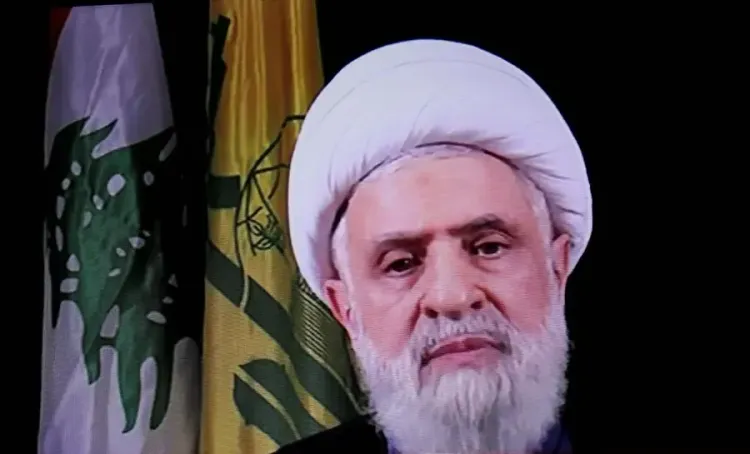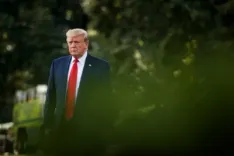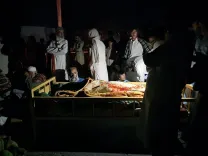Is Hezbollah Leader Ready to Confront Israel if Necessary?

Synopsis
Key Takeaways
- Naim Qassem declares Hezbollah's readiness for military confrontation with Israel.
- Lebanon faces an existential threat from Israeli aggression.
- Qassem emphasizes the importance of defensive readiness.
- The U.S. is accused of supporting Israeli violations.
- Hezbollah sees disarmament as a means to facilitate Israeli domination.
Beirut, July 19 (NationPress) Hezbollah leader Naim Qassem stated that the organization is entirely ready to engage in military confrontation with Israel if the situation demands it. He warned that Lebanon is encountering an "existential threat" due to the ongoing "Israeli aggression" and pressures from the US-backed regional dynamics.
His comments were made during a memorial event held for the group's late commander Ali Abdul Moneim Karaki (known as Abu al-Fadl), who lost his life during an Israeli assault in 2024.
"We are prepared for a defensive confrontation. Should Israel breach the line and aggression escalate to a level necessitating defense, we stand ready for either victory or martyrdom," Qassem articulated, as reported by the al-Manar local television channel.
He emphasized, "There is no room for capitulation or surrendering our weapons to Israel under any circumstances."
Qassem's statements emerge in the context of what he describes as intensified efforts to alter Lebanon's geopolitical landscape. "All current pressures—military, diplomatic, and economic—aim at one goal: disarming Hezbollah to serve Israeli interests," he remarked.
He accused the United States of supporting Israel's infringements and trying to impose a new agreement that would invalidate previous Israeli violations while reviving calls for Hezbollah's disarmament, according to a report by Xinhua.
Additionally, Qassem pointed to what he perceives as a broader Israeli expansionist agenda, citing Israeli maneuvers in Syria, Gaza, and the wider region.
"Israel is not merely occupying; it's expanding, controlling, and dictating," he stated, asserting that disarming Hezbollah would eliminate the last barrier to what he referred to as "Israeli-American domination" over Lebanon.








